|
Yesterday I had planned on reviewing an incredible dystopian romance but then I read the latest Trump & climate-related headlines & unfortunately saw some loose parallels.
The sad/infuriating truth is that the Trump administration is committing egregious offenses left & right & I see too many people I know & love support him—to say nothing of the people I see at the grocery store or whose yards I drive past. The ICE-related headlines earlier this week were particularly horrifying. (Of course I can hate Trump & also have to contend with my own white privilege, which means—as others have said, that I get angry about these things—often without being touched by them personally—& then retreat retreat retreat into something more comfortable.) This is a book blog/romancestagram account & I will continue to post bookish pics. Like this one. Because these books make me happy & I see so much value in what they have to say. I agree with what others have noted: the more time I spend reading in this genre the more I think it’s working harder for us than any other. I’ll also continue to be committed to voting this administration out in November, to examining myself for biases & privilege, to raising kids who do the same, & to supporting AOC & POC in their creative endeavors & in their Human Rights. (& in the latter in particular, I don’t want to oversell myself: I need to *act* much much more instead of just using the words.) I just wanted to share where I’m at.
0 Comments
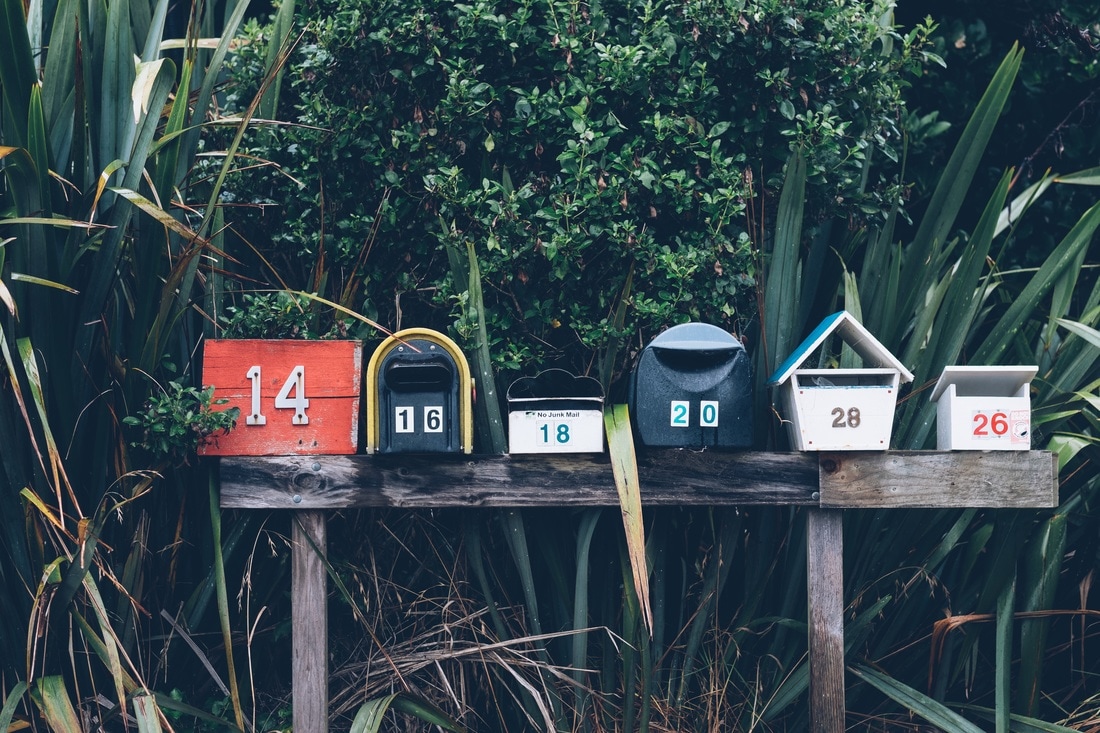 Less than three weeks in. Gulp. But if there’s one thing that I can feel good about--insofar as this whole political situation is concerned--it's that so many of my friends and family members are fired up. (And also, side note: do you feel like you've started talking to some people that you "knew" but didn't "know," as a result of this experience? I love how so many people have been lifting me up and I hope that I've been paying it forward.) A romance author whom I follow—Sarah MacLean, author of the fabulous A Scot in the Dark--tweeted on February 7th about the “silver lining” we can appreciate these days: “an informed electorate.” Yes. It’s one of those things that I’m both proud and mildly ashamed of. I should have done more in the past. It should not have taken a man who is both an imbecile and the ultimate reality-show mastermind to show me the error of my ways. And I’m sorry to the people who have been lifting the heavy weight for much longer than the rest of us. Thanks for hanging in there and fighting the good fight before the Trumpocalypse sent so many of the rest of us into a panic. I’ve written before about my particular journey to political awareness and how I’m trying to move from just writing about my beliefs in Facebook posts, blog posts and the like, to putting them into action. First, I'm trying to think about how I can move my writing efforts from a personal focus to an external. In other words, I'm trying to think more about what I hope to accomplish with my political related posts. (This woman--Jessica Shuck Christensen gestures to herself--can complain left and right, and it's easy for me to get stuck in that "complaining" phase without moving it into something productive.) Second, as others have said, while I still believe that a heck of a lot can be done through the written word, it’s also time that I, and so many others, start “putting our money where our mouth is" (i.e. donating to worthy causes), and/or volunteering to make a difference, and/or talking with someone we know who holds a different belief that we do, etc., etc. Words matter, but actions do too. My goals throughout this process are not only to resist and stand up for what I believe in (two huge motivations), but also to try to put some more goodness into the world. I always heard growing up that it’s not enough to complain about a problem—I need to try to offer a solution, too. One of my recent efforts to spread positivity was to sign up for Adopt A US Soldier. When I was in fifth grade, our social studies teacher at Heritage Elementary made us write letters to U.S. soldiers. I had an amazing soldier pen pal whose name was Kristy. Kristy wrote long letters in cursive on small sheets of lined notebook paper, and she sent me rocks from Bosnia because she knew that I collected rocks. How awesome and amazing does she sound?! I still have the rocks, mixed in with my others, although I lost contact with Kristy. I have such fond memories of that pen pal experience, so I was intrigued when a friend of mine recently posted on Facebook about how she had signed up for Adopt A US Soldier. She encouraged others to volunteer as well. I eventually went to the Adopt A US Soldier website, completed some contact information, and about a week or so later received an email with a soldier’s name, address, hobbies, and a comment. The soldier that I was assigned said “Thanks so much for all you do it is great for morale.” Think on that for a moment. I wrote one letter to the soldier on Wednesday, and I need to send this week’s later today or Friday. With Adopt A US Soldier you commit to one letter or care package per week. I hope to send a care package at some point in the near future—maybe with some Girl Scout cookies since I bought several boxes and people tend to like those (if we’re allowed to send a box—I have to check the rules). Now, according to the list of the soldier's hobbies listed in the email, it doesn’t seem like I have that much in common with the particular soldier I’ve been assigned. And I’m not sure how regularly the soldier will be able to respond to me. I’m also not sure if this person will enjoy hearing the day-to-day details of a stay-at-home-mom / aspiring writer with a “sophomoric” sense of humor (thank you, unnamed—and also beloved—Centre C. professor!). But I do know that this is something small that I can do that won’t require a lot of time or money and that might make a positive difference in someone’s life. I also know that while I don’t always agree with the decisions that are made by whichever commander-in-chief is commanding, I do support our troops and I value the many sacrifices that they have made to protect our freedom. (If you are a servicemember or have been one, or you are a family member of a servicemember, thank you SO very much!). I’m also excited about the opportunity to show a little love to someone far from home. It's a little bit of goodness that we can send out into the world. I'm trying to get my act together when it comes to being more active, even though I recognize that my efforts are very small (particularly when compared to what so many of you are doing.) I’d love to hear more about how you’re trying to make a difference. Your efforts are inspiring. Xoxo, Jessica
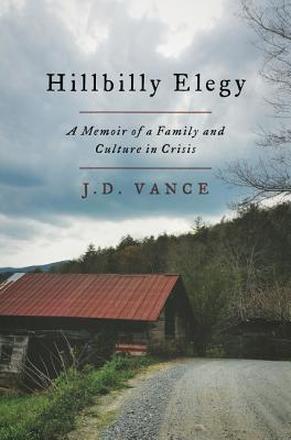 This weekend I settled in to read J. D. Vance’s Hillbilly Elegy, a buzzed-about book which has been touted as a particularly necessary read during these post-Trump election times. Hillbilly Elegy is immensely readable and immensely worthwhile. The book was revelatory to me on its own merits (i.e. as a memoir), but also because it gave me more insight into my own extended family and the general patterns of thinking and behavior amongst some white Americans which are difficult for me to understand. Vance grew up in Middletown, Ohio but also spent a great deal of time with his extended family in Jackson, Kentucky. His descriptions of where he started and how he got to where he is--a Yale Law graduate and writer with a successful marriage and career--form the meat of this memoir. Vance’s childhood and adolescence were tumultuous, to say the least. His mother is an addict who sometimes behaved erratically, and who repeatedly relocated her family as she started and ended relationships with her romantic partners. His biological father, who observes a strict adherence to his religious faith, gave up his parental rights to Vance but established a relationship with him later in his youth. In short, Vance (and his sister, Lindsay) had their share of problems to confront. Yet Vance left Middletown, Ohio for the Marines, and then went on to Ohio State University where he graduated early, and then attended Yale Law School. Vance credits his Mamaw and Papaw (his grandparents, for those of you unfamiliar with those titles) for providing him with stability, as well as his sister Lindsay, his Aunt Wee, and other role models, but he doesn’t discount the importance of personal agency, either. What Vance says is that where we grow up (the families and communities we grow up in) has a tremendous influence on our attitudes and our expectations. He cites studies which indicate that “There is no group of Americans more pessimistic than working-class whites,” a group which he counts his family (and some degree, himself) among. This information is particularly compelling when we, like Vance, consider it alongside how this same group of people has largely been so dismissive of President Obama and eager to embrace fake news (by the way: I'm not saying that these attitudes are only confined to working-class whites). Vance details his own troubled childhood and the lives of those around him to show how critical “the home” is for “hillbillies” like Vance and his family. Vance is quick to state that he is unaware of “what the answer is, precisely, but I know it starts when we stop blaming Obama or Bush or faceless companies and ask ourselves what we can do to make things better.” I mentioned earlier that this book gave me many potential insights into some of my own extended family's dynamics. My father’s family has been one that has struggled with addiction for I don’t know how many years. For the last hundred+ years, they seem to have lived in Kentucky, largely in rural Shelby and Henry counties. I didn't hear the word "hillbilly" a lot growing up, but I did hear "redneck" quite a lot, and I made a deliberate decision to try to speak without an accent when I was a pre-teen. Though my own childhood was relatively drama-free, I witnessed a couple of upsetting episodes amongst my extended family, and I heard about even more through the usual channels of family gossip. When I attempted to research that family history a couple of years ago, I discovered that not only had my grandpa struggled with addiction, but his parents had lost several children due to drowning and drinking bad milk, amongst other reasons, and his dad left the family; my grandpa’s grandpa committed suicide, leaving behind a wife and children; and my grandpa’s great-grandpa was hanged for killing his father-in-law. In other words, it seems like a long line of deep-seated issues—generations of disturbed men, and I don’t say that flippantly—many issues which I can guess at but don’t feel comfortable speculating. I would argue that my dad broke the cycle. He had flaws—like every other person in the world—but he was an excellent father and an excellent role model. Anyone who knew about the family that he grew up in wondered how he managed to make it out and thrive like he did. I’ve long wondered about the role that “the home”—one’s environment, and also, one’s genetics—play in family development, particularly in isolated rural communities, and how we reconcile that with we can do and choose to do by making our own decisions. I loved this book because Vance’s life was interesting and even inspirational, and I enjoyed reading about someone else who calls their grandparents Mamaw and Papaw like I do, and who loves his family even while suffering under the demands placed upon him by some of those family members. But what I loved most is how Vance writes about the role that our past plays on us in rural communities like where I grew up—how it shapes our actions and who we are and who we become—but how he also emphasizes our own agency in the process. I’ll take Vance’s thoughts with me as I continue to consider how my family ended up the way that it did—with my dad blazing his own path—and when I think about my hopes for son’s future. And finally, when I think about where things stand in our country politically. I don't think that "hillbilly" problems will be solved quickly, but it seems like Vance's book provides more illumination and allows us to see them better. On January 21st, 2017, my best friend Laura and I will be joining the thousands of women protesting the election of Donald Trump.
I’m protesting Donald Trump for many reasons on that day, but here’s how I would sum it up: I think that Donald Trump is morally repugnant. I think that he’s dangerous to all Americans, but especially those Americans who have been, and are still, marginalized during other arguably less volatile presidencies. And I think that if you object to Trump’s words, his actions, and perhaps most of all, his flagrant disregard for the truth, then it’s your responsibility and also obligation to speak out against him. When I write something anti-Trump, I have the fear that someone else will hear the shrill note of the self-righteous in what I write. Or that they’ll remember the moments in which I’ve been a hypocrite, when I’ve dipped my toes into less moral waters, like when I prioritize a flip (or cutting or demeaning) “joke” or comment over what I know to be right and truthful. And sometimes I question my motivations. Am I a “white liberal elite" or a "smug white liberal," just a mouthpiece who is talking again and again about values which I’ve read about in books, but who fails to act on them when it really counts? (Because that’s the part that I still haven’t figured out: how to be someone who acts, instead of someone who just complains. I’m good at complaining.) And lastly, when I write about Trump, I don’t always have 100% certainty that I’m responding to his words and actions, and those of his supporters, in the “right” way. How can I navigate this post-Trump world when a large part of me feels drawn to those calls for empathy, kindness, and love, but when another large part of me, probably larger than the first, feels like now is the time to be angry and to use that anger to be a better advocate for others and myself? That’s when I think about figures like Martin Luther King Jr., Barack Obama, Joe Biden, and many, many others (including Twitter warriors like Chrissy Teigen and Victoria Aveyard), and I think that there’s a way that we can speak from our feelings of anger/ frustration/disgust and love. I’m marching and I’m speaking out about Trump—even if I don’t always have the right words to use—because this is one time in my life when I feel like staying silent would be the wrong thing to do. When I feel like staying silent would be more disrespectful and more detrimental to others and to myself, and when staying silent would be the wrong type of behavior to model for my son. I’m terrified of a Donald Trump presidency in a way that I’ve never been about a national event before. I’m terrified that my son is going to grow up under a president who thinks that it’s acceptable to mock the disabled, to call immigrants “rapists and murderers,” to repeatedly insult women (and who has been accused of sexually assaulting women), to judge people based solely on where they are from, to call for a Muslim ban, to refuse to release his tax returns and to lay out specific plans which address his numerous conflicts of interest, to praise Putin and criticize our president, to encourage violence. I’m terrified that Trump thinks that it’s acceptable to repeatedly lie, even when we have Tweets and tapes and witnesses to reveal his lies. And, as my husband reminds me, it’s perhaps even scarier that his supporters aren’t equally bothered by these lies. (See Chrissy Teigen’s recent hilarious and also sad Tweet about Trump and hot dogs). And I know, as someone* wrote, that it’s a privilege of sorts that this is one of the first times in my life that I’m terrified of the power that someone else will have over my life, my son’s life, my husband’s life, and my other family members' and best friends'. After all, I identify as a heterosexual white woman who comes from what I would call an upper middle-class background. I have had my own struggles—but besides the typical anxious feelings that a woman might get when she’s by herself out in the world, plus a few other random incidents—I don’t regularly worry about my personal safety. And I definitely don't worry about whether I might be able to stay married to the person that I love. Or whether I (or my family members) might be deported. Or whether I might lose my insurance. Or whether I’m going to be the victim of a racist act, big or small. If I’m judged on the basis of what I look like, or who I’m married to, or what my religious faith is, or where I’m from, it’s not at all in the same way that so many other Americans are judged. I’m sickened by the thought that Trump isn’t even President yet and it seems like things have become so untenable. I’m tired of feeling like we’re in a game of limbo and the bar is constantly lowered, but it’s not Trump or the other people in his cabinet who are having to scrape the bottom, it’s us. They’re just the ones who are holding onto the bar. On January 21st, I’m marching for myself, my son, my husband, my family and friends, and every other American. I’m marching for the people who are marginalized and who were targeted by Trump during the campaign and during his president-elect period. I’m marching for every person who is not a straight, white, American male, and I’m marching for the straight, white, American males, too. I’m doing it proudly, and because I want to finally start doing something, even if it’s logging steps and carrying a sign. Please join us—in person in Lexington, Kentucky, or in your own city. Let’s show Trump that we won’t back down and that we’re not impressed by his Tweets and his exclamation points. This is my goal for as long as Trump is President, and I’m going to really demonstrate it on January 21st: I’m going to stand up for what I believe in--even if my voice is annoying to some (and occasionally myself)—and I’m going to be an active advocate for the people who are even more terrified than I am. *I’m sorry that I couldn’t find this person. I'm pretty sure that I read this on Twitter. |
About me.Give me that HEA, please.
Join my mailing list.Want to receive a weekly email with links to my latest blog posts? Sign up below!
Archives
April 2024
Categories
All
|
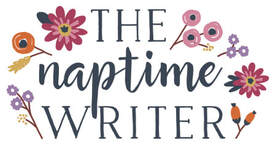
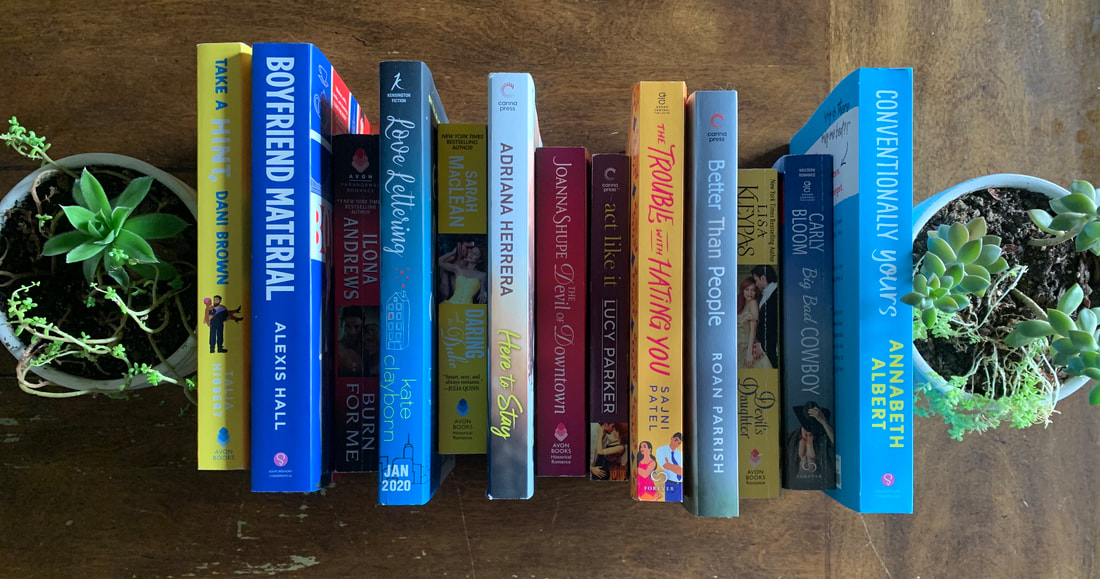
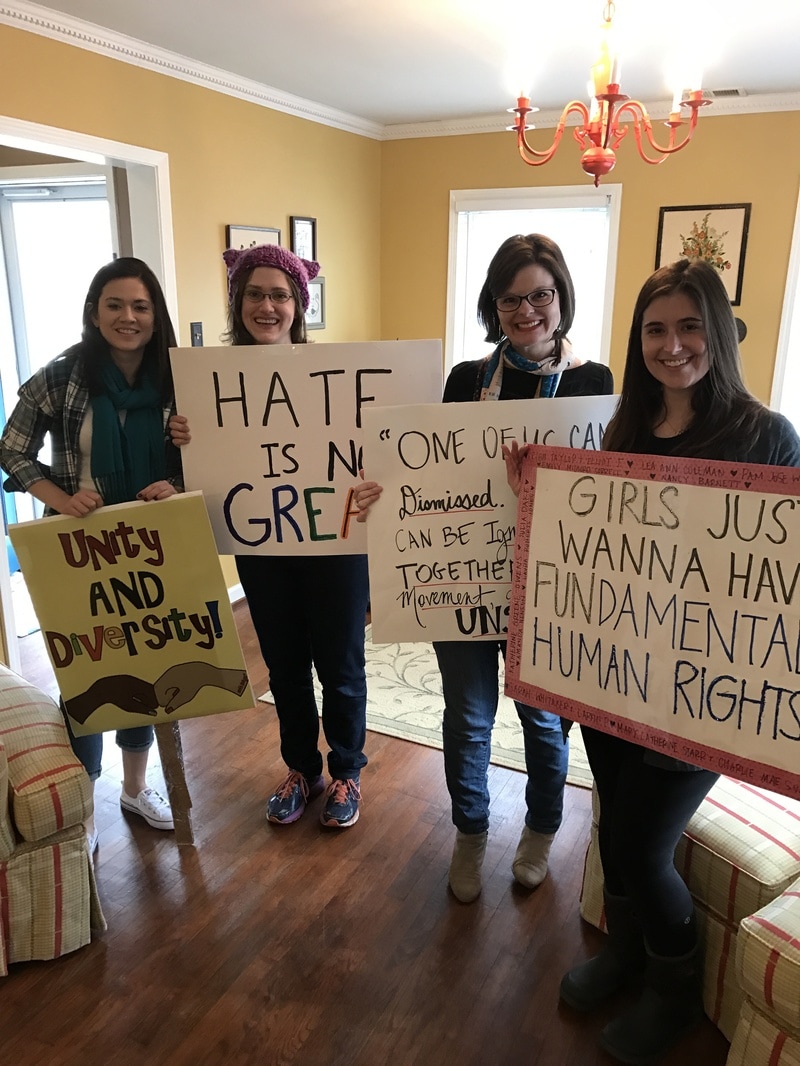
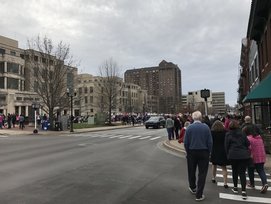


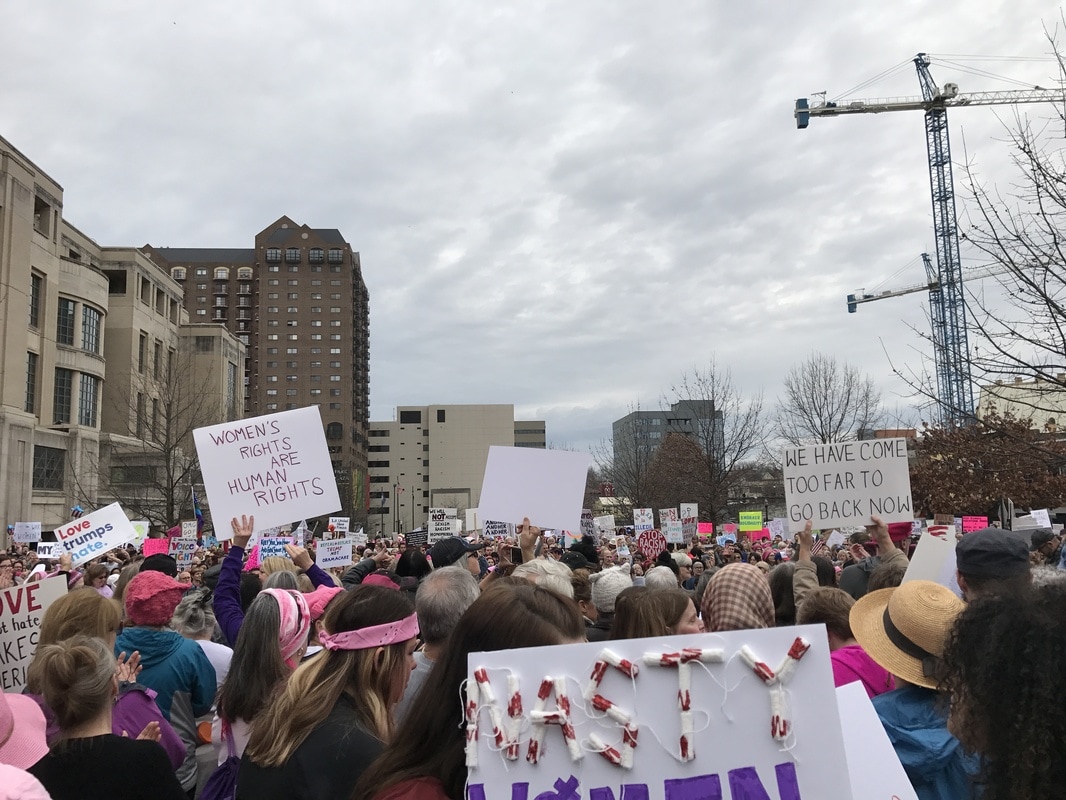
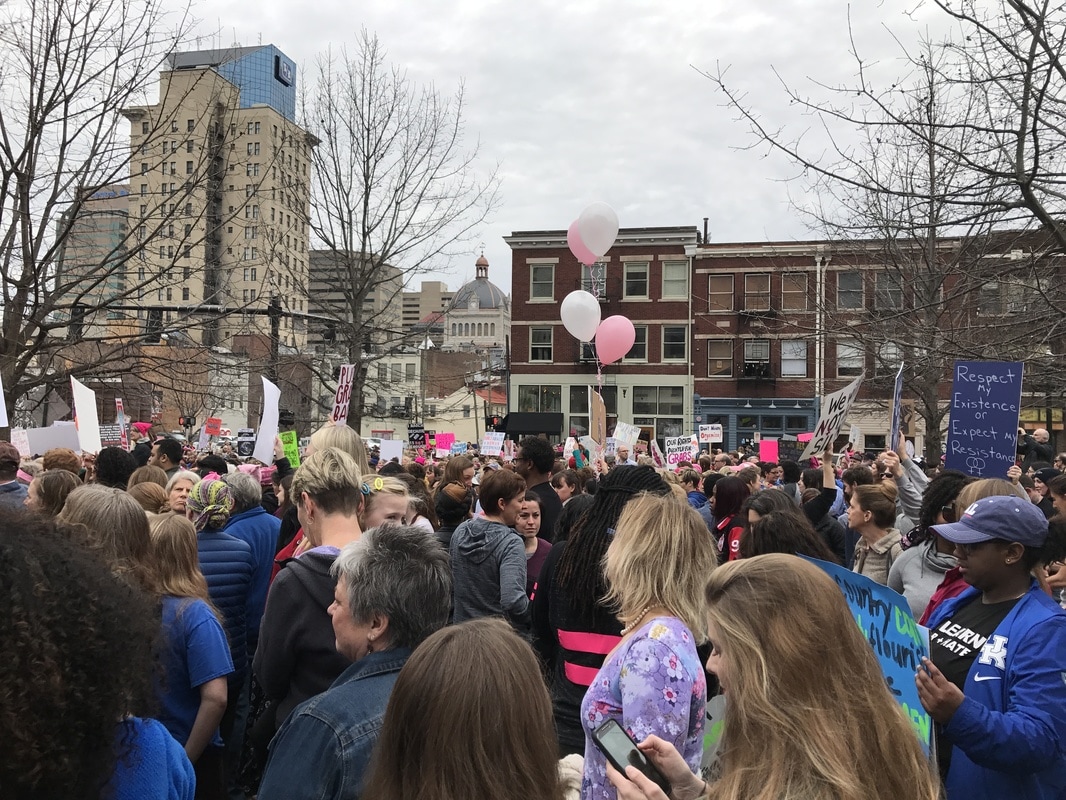
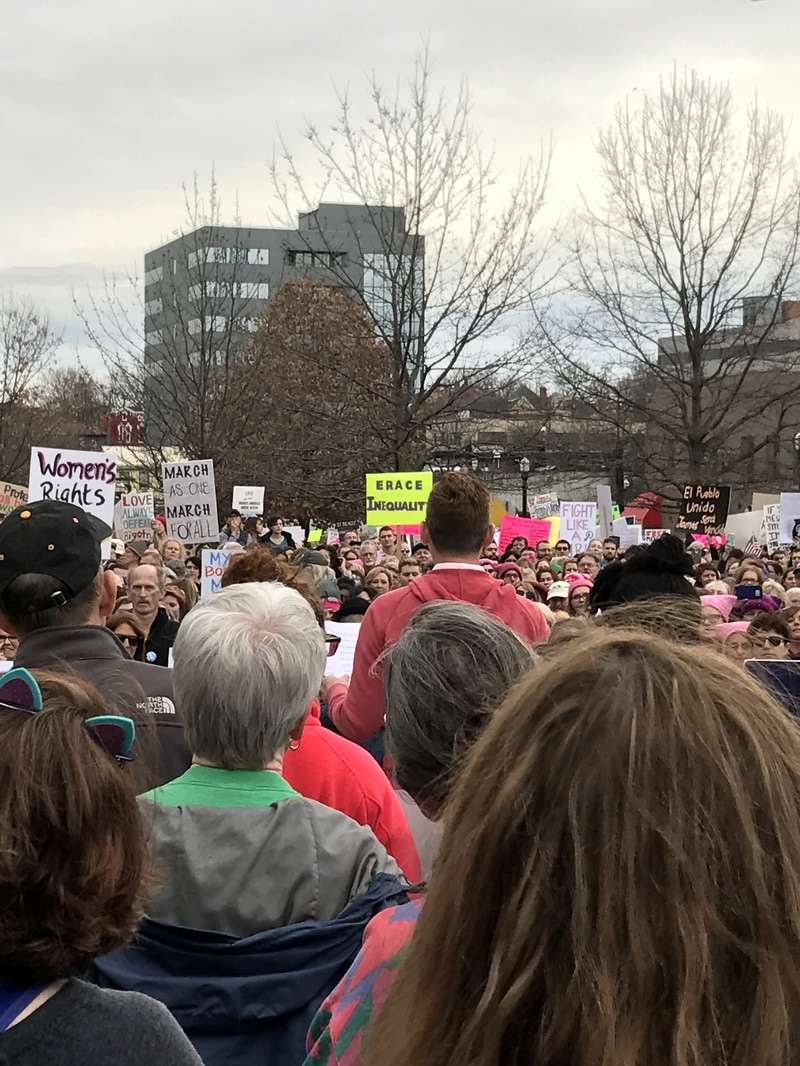
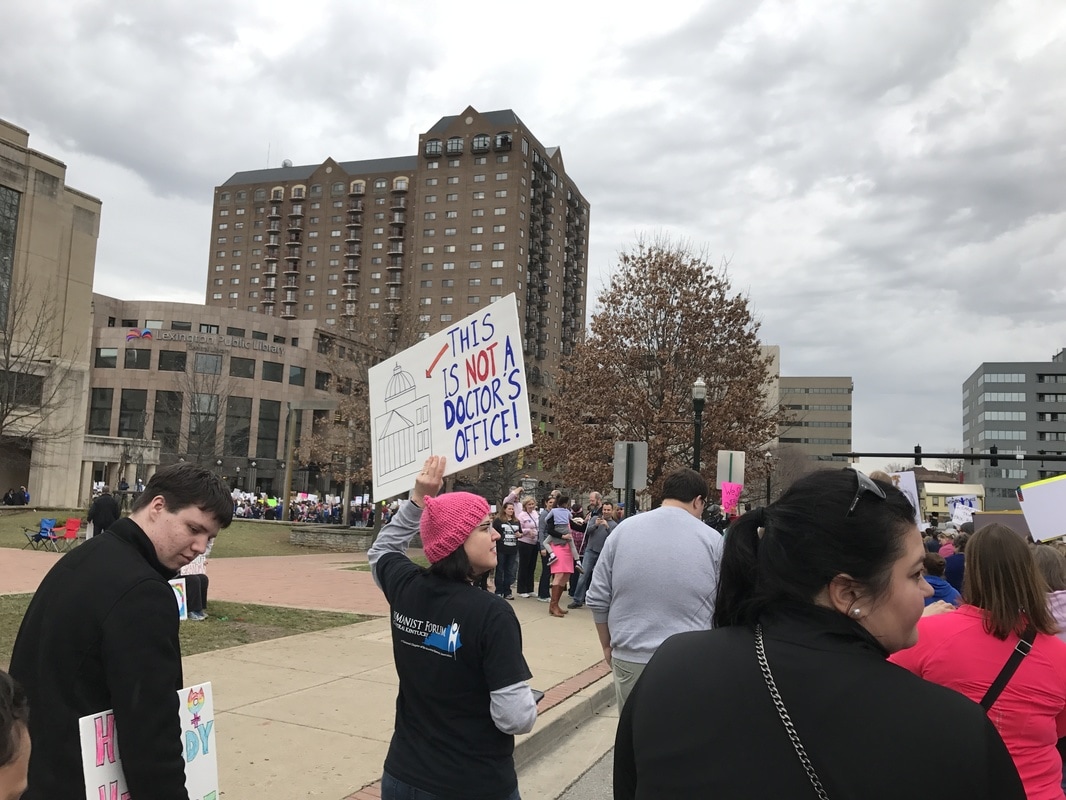
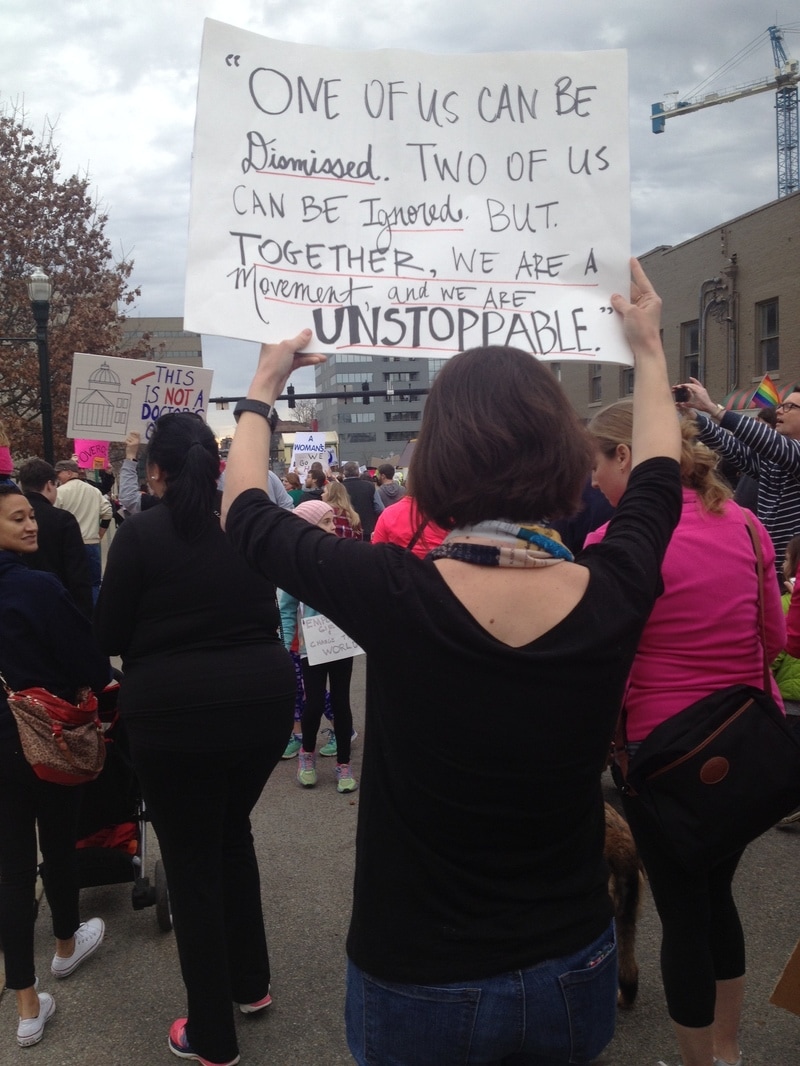
 RSS Feed
RSS Feed
